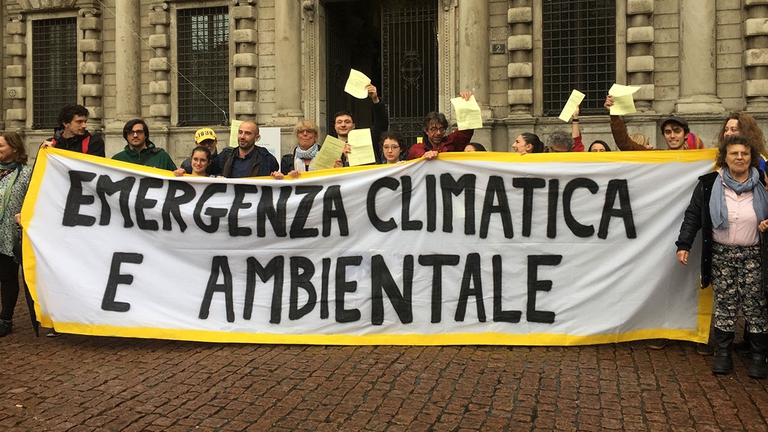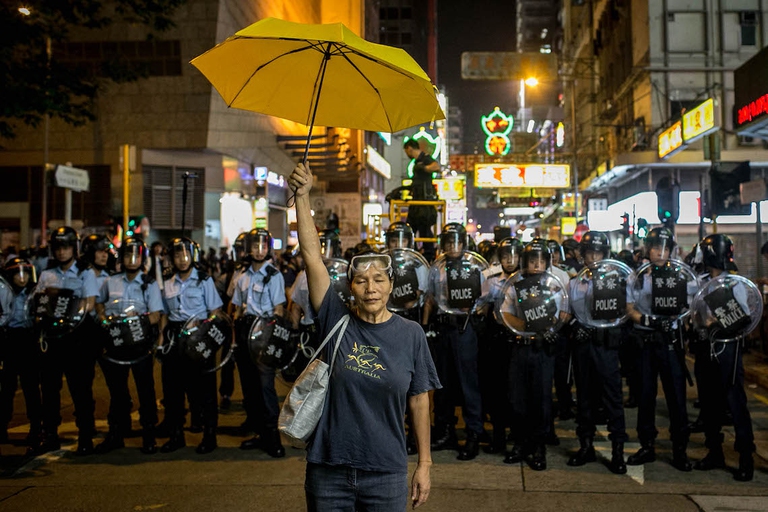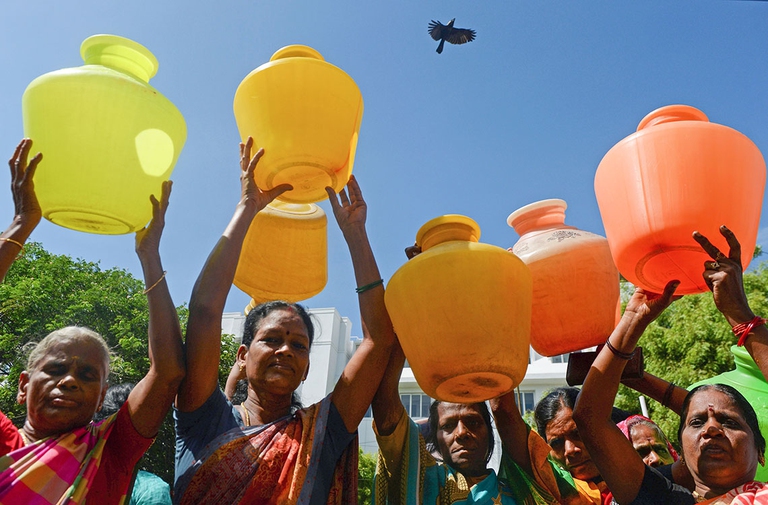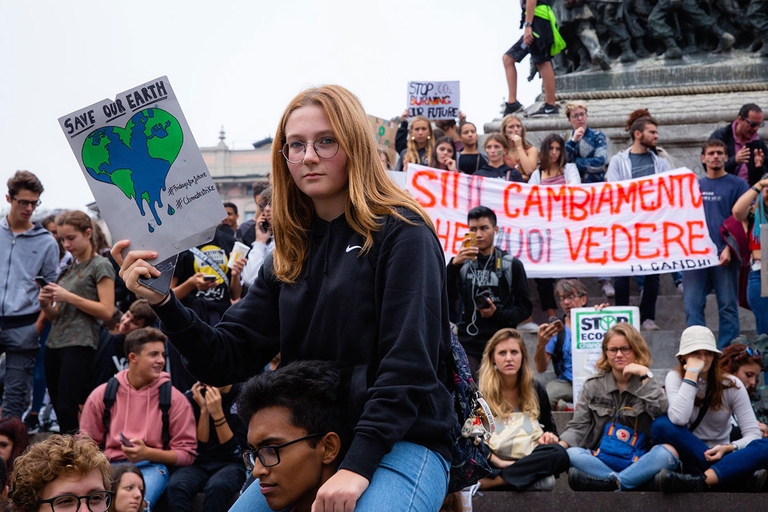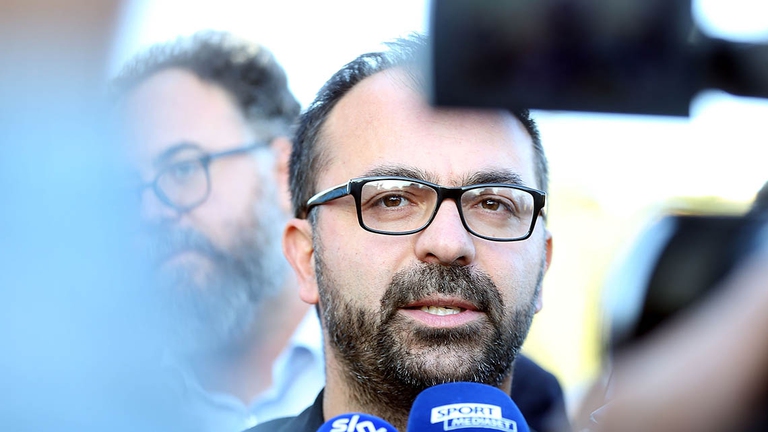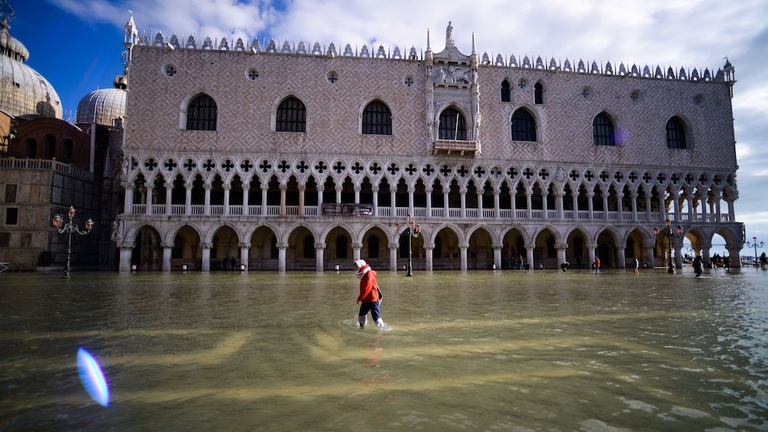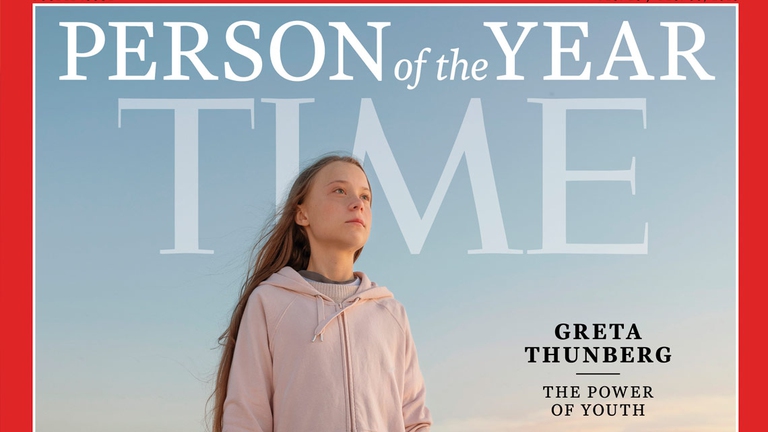
Three people putting the protection of the planet before themselves. Three powerful stories from Latin America, the deadliest region for environmental activists.
A look at the 10 most important news stories of 2019 from the point of view of sustainability: to prepare for 2020, the first year of the “climate decade”.
2019 will be remembered as a historic turning point. LifeGate has concerned itself with sustainability for twenty years now and can safely say that the issue is no longer considered “niche”. It has become a topic of fundamental importance that has finally found its place in the news, on front pages, but most of all in the daily conversations of ordinary people. For better or worse. We’ve witnessed unique and painful events: wildfires have laid waste to the Amazon, Australia and African forests; Venice has been hit hard by high waters; and though the plastic island in the Pacific Ocean is the best known, one has been discovered in the Mediterranean Sea too. Because of all this, people around the world, starting with the youth, have “thrown off their covers” and got out of bed, conscious of the fact that the time has come to take action. Starting with changes in their daily routines, while fighting for radical change. Because a major paradigm shift is needed.
2019 has been the year of the Global Strikes for the Future, the year in which activists‘ voices had an impact on international conferences, and the year of grassroots protests in the name of human rights. According to Greta Thunberg and IPCC scientists, 2020 will be the first year of what is being defined as the “climate decade”, when governments all over the world will have to present their new climate plans for 2030 – and this time there will be no space for hesitation. To avoid the most disastrous consequences of climate change, global greenhouse gas emissions will have to be reduced by 7.6 per cent a year until 2030. If not, nothing will remain the same. Entire villages will be erased from our maps, and animals like the Javan rhino and Caretta caretta turtles will be a thing of the past.
More than ever, our new year’s resolutions will have to be sincere and deserving of our efforts. No more dieting or going to the gym, because the most important thing in life are our loved ones. And it’s time for us to show the planet our love. While we wait to dive into this new, exciting adventure, let’s retrace the most important news stories of 2019, the fundamental steps in the year-long journey that is coming to an end.
On the 1st of May 2019 the UK Parliament declared a climate and environmental emergency, becoming the first country in the world to do so. “We have no time to waste. We’re living in a climate crisis that will spiral dangerously out of control unless we take rapid and dramatic action now,” commented Labour leader Jeremy Corbyn, the main proponent of the motion that passed unopposed. Following the UK’s example, Ireland, Canada, Italy and the European Parliament also declared a state of emergency, together with many local administrations.
Plastic pollution is causing the geography of the Tyrrhenian Sea, on the western coast of Italy, to change. In fact, a new strip of “land” has formed between Corsica and the island of Elba, a plastic island similar to the one found in the Pacific Ocean. However, in contrast to the latter, the mass in the Tyrrhenian Sea isn’t permanent, due to changes in currents. “What we see are temporary accumulation areas visible for a time ranging from a few days to a few weeks. Only in certain cases can they last two or three months,” explains François Galgani, director of the French National Institute for Ocean Science (Ifremer).
Hundreds of thousands of people – maybe even a million – took to the streets of Hong Kong on Sunday the 9th of June, marking the start of one of the biggest marches since independence from British rule in 1997. The mobilisation was organised in opposition to the local government’s plan to authorise extraditions to China. Though the law wasn’t approved, Hongkongers have continued protesting their government and Beijing’s growing control over the city.
By the 29th of July, humanity had already used up its annual budget of natural resources made available by the planet: we’ve never exhausted our yearly allowance so quickly. Considering the rate at which we burn through the renewable resources that the Earth generates in 365 days, we’re using 1.75 planets up in a year. But we really only have one, and will pay a high price for this unchecked exploitation.
Following the wildfires that tore through Arctic forests with terrible consequences for the climate, humanity and wild fauna, the Amazon rainforest also fell victim to huge forest fires this past August. Over 74,000 of them were recorded, an 84 per cent increase compared to 2018. Around the same time, Africa’s entire central belt, home to the Earth’s “second green lung“, was also devastated. In December, Australia started burning too, and it probably won’t free itself of the flames before the new year begins. Here, koalas have become a symbol of this tragedy because they’re dying in their hundreds.
As mentioned earlier, 2019 was the year of the Fridays for Future climate strikes. Young Swedish activist Greta Thunberg set off the spark when she began her solitary strikes in front of the Swedish parliament in August 2018. A growing number of students – often joined by teachers and whoever else wants to take to the streets calling for action against global warming – are following Thunberg’s example, planning marches every Friday, four of which happened on a global scale. The most important ones took place on the 20th and 27th September, opening and closing the Climate Action Week. In total, approximately 7.6 million people joined in worldwide, making it the largest environmental demonstration in history.
In November, former Italian Education Minister Lorenzo Fioramonti revealed that, starting with the next school year, the subjects of climate change and global warming will be part of the national curriculum for a total of 33 hours of lessons over the course of the academic calendar. This reform will concern all state schools. But there’s more: many traditional subjects like geography, maths and physics will be studied from a new perspective, integrating the topic of sustainable development.
Around 11PM on the 12th of November, water levels in some parts of Venice reached 187 centimetres. This figure, confirmed by Mayor Luigi Brugnaro, was only slightly lower than the exceptional high water level reached on the 4th of November 1966, when the tide creeped up to 194 centimetres. This year’s event led to over 80 per cent of the city being submerged, also due to the very strong southern winds that swept water inland.
It all started on the International Day for the Elimination of Violence against Women in front of the Supreme Court in Santiago, where a group of women came together for a feminist flash mob. “Un violador en tu camino, el violador eres tú” (A rapist in your path, the rapist is you) is the title of the protest song they performed against rape and impunity for gender-based crimes. It became a viral anthem, resonating in protests all over the world.
Greta Thunberg was chosen by Time Magazine as Person of the Year 2019, the youngest ever to receive the title. Because of previous generations’ actions, her and her contemporaries will inherit a planet that is going adrift. But her message is clear, Time explains: we must act now. The world is changing quicker than ever, and young people are those who will suffer the worst consequences.
Siamo anche su WhatsApp. Segui il canale ufficiale LifeGate per restare aggiornata, aggiornato sulle ultime notizie e sulle nostre attività.
![]()
Quest'opera è distribuita con Licenza Creative Commons Attribuzione - Non commerciale - Non opere derivate 4.0 Internazionale.
Three people putting the protection of the planet before themselves. Three powerful stories from Latin America, the deadliest region for environmental activists.
Influential scientist, activist and author Vandana Shiva fights to protect biological and cultural diversity, and against GMOs.
Kimiko Hirata has blocked 13 new coal plants in Japan, but she hasn’t done it alone. The 2021 Goldman Prize winner tells us about her movement.
The Goldman Environmental Prize, the “green Nobel Prize”, is awarded annually to extraordinary activists fighting for the well-being of the planet.
We talk to Shaama Sandooyea, activist and marine biologist from Mauritius onboard Greenpeace’s Arctic Sunrise ship in the heart of the Indian Ocean.
Arrested for supporting farmers. The alarming detention of Disha Ravi, a 22-year-old Indian activist at the fore of the Fridays for Future movement.
Water defender Eugene Simonov’s mission is to protect rivers and their biodiversity along the borders of Russia, China and Mongolia.
Chibeze Ezekiel, winner of the 2020 Goldman Environmental Prize for Africa, is fighting to guide new generations towards a renewable future.
Leydy Pech, winner of the 2020 Goldman Environmental Prize for North America, is the beekeeper who defended Mexican Maya land against the agro-industry.
